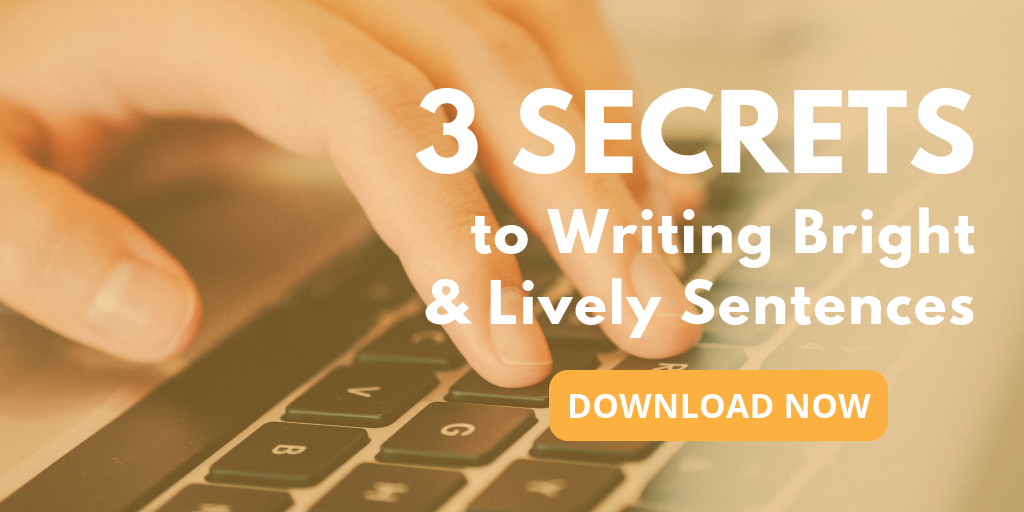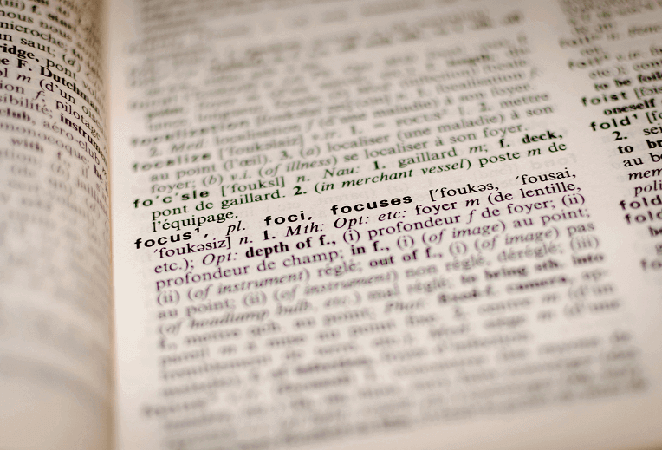Applying for college, fellowships, and graduate school is stressful; it can be daunting to select potential schools, take standardized tests, and secure letters of recommendation. The choices you make now will determine your future.
More than any other part of the application process, many people fear writing their personal statement. There’s good reason to take it seriously: competitive programs use personal statements to evaluate fit and identify candidates they think will make a lasting impact.
What is a Personal Statement?
A personal statement is a crucial part of the application process. It helps you share who you are beyond your grades and show your personality. It describes your achievements, talents, interests, and goals. It’s an opportunity for you to tell a cohesive story that highlights your past and paints a picture of your future.
For new college applicants, the pressure to perform and adapt is immense. Each school may have different length requirements, and with 200-, 500-, and 900-word options, it’s easy to get stuck trying to write the story of you in so many ways, while keeping it fresh and authentic.
On the other end of the spectrum, if you’re returning to school or applying for fellowships and grants after several years in the workforce, you’ve come to rely on your resume and cover letters, so the length and topic may present a challenge. Many applicants with professional experience struggle with the unfamiliar task of writing 500 to 900 words about themselves.
How Do You Write a Good Personal Statement?
The personal statement is an important part of your application. You can prepare your best personal statement with these tips:
1. Do your research
You’re likely applying to multiple schools, and while you might be applying to as many as you can just hoping one will take you (I’m looking at you, potential med students), you chose each school for a reason.
Reusing part of your essay for different schools is fine, but tailoring part of your personal statement to each program shows admissions you identified concrete, compelling reasons you want to attend their institution. Connecting your interests or history with a professor’s research or a relevant student organization shows you want to be involved in that school, not just show up for classes.
2. Work on your personal statement early
Writing a compelling personal statement will take longer than you think, and you may have to start over more than once, so begin the process early. Think about the topic, themes, and takeaways you want to include in your personal statement; consider how your specific experiences relate. Before you write, conceptualize how everything fits together and what you want your reader to remember. Once you have an outline for your story, start your first draft. Getting through the first draft will help prevent procrastination.
3. Leave time for feedback and editing
Because you know the full story of your life, it’s easy to write a personal statement that feels cohesive and powerful to you, but seems unclear, fragmented, or contrived to the reader. Don’t wait until a week or two before the deadline—seek early feedback from specialists who can help you improve. The sooner a counselor or editor receives your draft, the more time they will have to carefully review it; they may even have time to review a second draft. If you start late or don’t leave time for feedback, admissions committees will see a weaker and less compelling version of your story. Since you only get one chance, make it count.
4. Think about your audience
Though your personal statement might be about you, it’s not for you. To keep your audience front-of-mind, before writing your first draft, ask yourself: Who will read your personal statement? What factors will they use to make a decision? How will you show the reader you’re a perfect fit for the school or program you’re applying to? What do you want your reader to remember about your story? These questions can help you craft a strong, focused personal statement.
5. Know what your personal statement adds
Your application package should present one consistent story; and your personal statement should seamlessly fit into that story without feeling repetitive or contradictory. Approach your personal statement like a necessary ingredient rather than a summary of your application package or a complete memoir of your life—it need not include everything that’s ever happened to you. Your personal statement can be your opportunity to discuss a topic you wanted to cover in your application but couldn’t because of limited space; express more thoughts about a specific subject or something you’d want people to remember you for; or share your success story. Know your purpose and revise until it’s clear.
6. Start with a strong opening sentence and introduction
The opening sentence and introductory paragraph will set the tone for your personal statement. Will your reader begrudgingly endure your statement or will they read on with interest? It all depends on how you start. A surprising, humorous, touching, or unique opener can win over your reader. Whatever you write, make sure it fits your personality and connects with the rest of your statement.
Coming up with that perfect opening sentence can be a challenge, so take your time. If you’re stuck, you can come back to your opening sentence or paragraph. It’s sometimes easier to write the opening after you’ve reached the conclusion. You can also try deleting the first few sentences, which may be aimless throat-clearing, to see if that creates an energizing introduction.
7. Connect your story to your dream program
Your personal statement should connect your history to your future in your dream program. Explain why you’re applying and how the program will help you achieve your goals. Be specific. Invite the reader to imagine your future with you, and make it memorable—“show, don’t tell.” Consider writing about your intended major, research, or career path; how you discovered your program and what inspired you to apply; and why the experience is important to you. If you’re stumped, try writing about the program’s location, internship opportunities, or extra-curricular activities.
8. Leave some subjects out of your personal statement
With a name like personal statement, you might think there’s no limit to how personal you can be, but that’s a mistake. Unless the prompt from your program specifically asks you to discuss controversial topics such as religion or politics, avoid them. Respect boundaries: don’t overshare. Leave out irrelevant or outdated experience. If you’ve already graduated from college, steer clear of experiences or accomplishments you’ve had in high school or earlier.
Your personal statement should help the reader get to know you and make them want to learn more. Write about your unique achievements, interests, experiences, qualities, or opinions. Avoid irrelevant or inappropriate topics—they won’t make you memorable for the right reasons.
9. Don’t worry about word counts for your first draft
Outlines, lists, unrelated paragraphs—first drafts can take many different forms. However you write your first draft, remember it’s not your final draft, so it need not abide by the word limit or every punctuation rule you’ve ever learned. You just need to get your ideas on paper; expanding on or condensing them can come later.
10. Write in active voice
A personal statement should not read like a long-form, detached summary of your resume. Don’t forget that you’re telling a story. Use the active voice to make sure you’re the star of your story and use action verbs to set the pace and drive engagement. Falling into passive voice minimizes your presence in the story and diminishes the value of your experience, judgment, and decision-making. Use “I” in your sentences and don’t use “allowed,” “gave,” or similar words which make you the receiver of a particular action. Choose dynamic verbs that capture your reader’s imagination; weak, generic verbs won’t hold your reader’s attention or make a lasting impression.
11. Make your personal statement concise
Concise is compelling, so choose your words carefully. When you don’t waste words, you show you’re confident about your message and delivery. Long words, winding sentences, redundant phrases, filler words, and unclear language make you seem uncertain about your story or insecure about yourself. They also slow down reading, which bores the reader and encourages nitpicking about writing style. Focus on clarity and brevity to wow your reader with a captivating personal statement.
12. Choose your editors carefully
You obviously want to choose editors who write well, but it’s also important they know you well. Your friend’s sister’s girlfriend who works as a copy editor might make good grammar suggestions, but she won’t know if you’re writing in your own voice. If an editor encourages you to use long words and jargon, or to take other approaches that don’t come naturally to you, find a different editor. An editor who is a good fit won’t let their prescriptive ideals overwhelm your authentic voice. Don’t get caught up in spelling and grammar errors before you know you’ve expressed the ideas you want to convey. Friend’s sister’s girlfriends, and editing software like WordRake, will be there when you’re ready to polish your draft.
Impress Your Reader with a Polished Personal Statement
The key to writing a good personal statement (or any other document) lies in revising and editing until you create a polished piece that explains why you have applied to a specific school or fellowship. Editing features in Microsoft Word’s grammar checker and spell checker can help, and add-ins like WordRake will suggest ways to clean up and clarify your writing so your message is clear to the reviewing committee.
With WordRake’s help, you can:
- Edit your essay for plain language
- Cut unnecessary introductory phrases
- Improve the pace with shorter words and sentences
- Remove filler words and redundancies
- Correct usage errors
- Detect high-level grammar and punctuation errors
- Stay under maximum word limits
- Write using professional style and tone
Make sure your personal statement shows your personality and your writing skills. Try WordRake on your personal statement (and anything else you write) for the next seven days for free at wordrake.com/trial.
Examples of Edits WordRake Makes to Personal Statements
Being a perfectionist, I often tore up my work in frustration at the slightest hint of imperfection. As a result, I was slowly falling behind in my art class, so I had to seek out alternative options alternatives to actualize the ideas I had my ideas in my head. Oftentimes Often that meant using mixed media or experimenting with an abundance of many unconventional materials like newspaper or cardboard. Eventually I went on to win won several awards, showcased my art in numerous many galleries and magazines, and became President of the National Art Honors Society. Taking four years of art hasn't just taught me to be creative; it's taught me that there are a plethora lot of solutions to a problem.
WordRake improves the pace of reading by reducing the number of words used to convey a thought (ex. changing "seek out alternative options" to "seek alternatives"). Removing extra words can help the applicant meet word limits and keep the attention of the reader evaluating their application. WordRake also helps writers see where they can trade complex words for short, familiar words, lowering the mental load for the reader so they can quickly read the personal statement while still absorbing full meaning.
Irregardless Regardless of these impediments, I have sustained an exemplary scholastic record, buoyed by an unyielding resolve to transcend the bounds of my initial circumstances through the pursuit of tertiary education. My ambition is to harness a variety many of the opportunities proffered offered by San Jose State University for the development developing and advancement of advancing my career path.
WordRake identifies nominalizations (which can become mind-numbing for readers) and helps writers create more engaging sentences by suggesting edits for how they can use active voice instead. In this example, WordRake's track-changes style editing suggestions offer clear, non-judgmental feedback showing the writer they can change "irregardless" (which is not commonly accepted in formal writing) to "regardless." Using the former word may have distracted the reader from the content of the personal statement. With WordRake, it becomes a non-issue—the writer can find and switch out this word in seconds.
As I reach out to express my interest in UC San Francisco, I carry with me not only the pride of being a first-generation college student but also a profound sense of purpose. I have the aspiration aspire to become a scientist, driven by a personal mission to make a contribution contribute to the medical field and to develop and implement create a cure for the cancer that afflicts my grandmother.
WordRake helps writers better convey meaning by cleaning up extra words that clutter the page and weigh on the reader's already busy, tired brain. Here, WordRake finds more nominalizations and offers clear suggestions for how to use more verbs for active voice (ex. change "have the aspiration" to "aspire"). WordRake software also identifies where writers can remove redundant words that don't add meaning to the sentence (ex. "express" does not need "reach out").
Unfortunately, I have decided to choose chosen a career different from my family's wishes. Their recommendation was to focus They recommended focusing on engineering, which has led to a difficult situation regarding financial support. My family, staunch in their belief in a scientific career, will not provide financial assistance for assist my education in the arts. Therefore, So I am humbly requesting asking for financial aid to help me pursue my passion for music and dance at your esteemed institution.
Writers may think that using nominalizations will help them sound more professional. However, condensing these phrases helps to make meaning more immediately clear by reducing the mental burden on your reader. For example, "they recommended focusing " can be processed by readers more quickly than "their recommendation was to focus." When readers instantly understand your meaning, it is easier for them to connect with what you've written and share with others why they think you are a strong candidate.
Clear, concise writing makes an impact, so it's worth it to polish your writing. In seconds, WordRake helps you edit your personal statement to improve brevity and simplicity. Thoroughly edit your writing to tip the scales in your favor. Try WordRake free for 7 days.
About the Author
Caroline Engle is WordRake’s Marketing Communications Specialist. She convinced WordRake to hire her as an intern after placing in editing competitions and writing a novel in a month. When she isn’t editing or writing copy, coordinating conference logistics, or helping improve WordRake’s functionality, she’s reading, going on ten-mile walks, or looking up flight prices. Connect with her on LinkedIn here.








